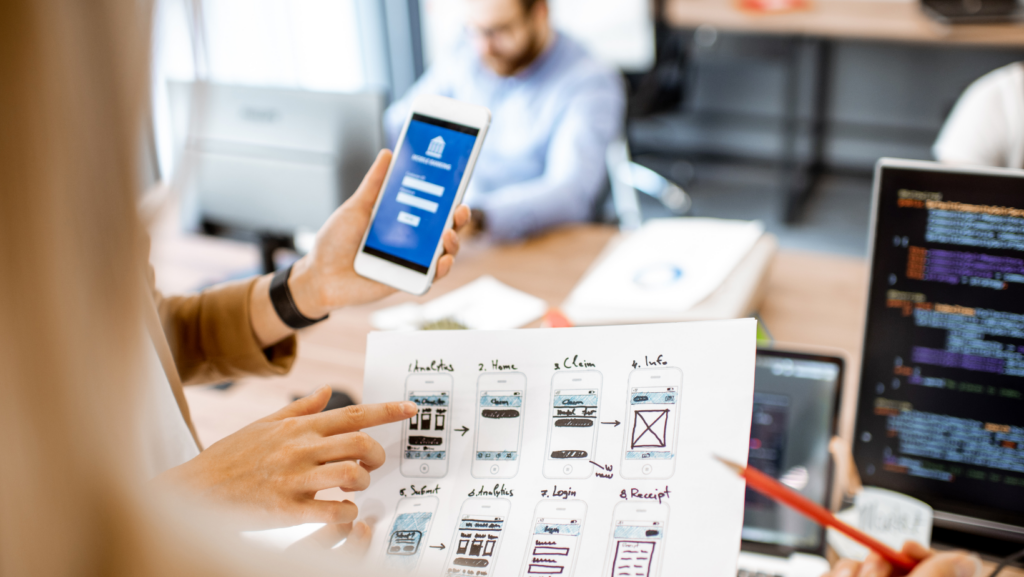Modern accountants need powerful tools that keep pace with today’s fast-moving business world. Mobile apps have transformed how financial professionals manage tasks track expenses and collaborate with clients. These digital solutions make it possible to handle accounting work from anywhere at any time.
The right mobile apps can streamline workflows boost productivity and help accountants deliver better service to their clients. From receipt scanning and expense tracking to full-featured accounting suites today’s accounting professionals have access to an extensive selection of mobile tools designed specifically for their needs. With cloud integration real-time data access and automated features these apps are revolutionizing how accountants work in the digital age.
Mobile Apps for Accountants
Mobile accounting apps deliver measurable advantages that streamline financial operations and enhance service delivery. These digital tools transform traditional accounting processes into efficient, automated workflows.
Increased Productivity and Efficiency
Mobile accounting apps automate repetitive tasks to reduce manual data entry time by 60%. Accountants gain enhanced capabilities through:
- Automated data extraction from receipts using OCR technology
- Batch processing of multiple transactions simultaneously
- Pre-populated templates for common accounting entries
- Smart categorization of expenses based on historical patterns
- Integration with bank feeds for automatic transaction imports
- Customizable workflows for recurring financial processes
- Live dashboard views of key performance indicators
- Synchronized data across multiple devices in under 60 seconds
- Instant notifications for account updates or anomalies
- Real-time collaboration with clients through shared portals
- On-demand generation of financial reports
- Secure access to historical transaction records within 3 clicks
| Productivity Metric | Traditional Method | Mobile Apps |
|---|---|---|
| Data Entry Time | 4-6 hours/day | 1-2 hours/day |
| Report Generation | 2-3 hours | 5-10 minutes |
| Client Response Time | 24-48 hours | Under 1 hour |
| Document Processing | 15-20 min/document | 2-3 min/document |
Essential Mobile Apps for Accounting Professionals
Mobile accounting apps streamline financial workflows through specialized functions for expense management, invoicing, and tax preparation. Each category serves distinct accounting needs with specific features optimized for professional use.
Expense Tracking Apps
Expense tracking applications automate receipt capture and categorization for efficient expense management. Leading solutions include:
- QuickBooks Mobile: Captures receipts with GPS tracking for mileage expenses
- Expensify: Processes digital receipts using OCR technology with 98% accuracy
- Receipt Bank: Extracts data from receipts in 15+ languages within 24 hours
- Zoho Expense: Integrates corporate card transactions with automated receipt matching
Invoicing and Billing Apps
Digital invoicing platforms accelerate payment cycles through automated billing processes. Popular options include:
- FreshBooks: Creates professional invoices with customizable templates
- Wave: Processes unlimited invoices with integrated payment processing
- Xero: Supports multi-currency transactions across 160+ currencies
- Square Invoices: Enables instant payment acceptance with 2.9% transaction fee
- TaxAct Professional: Manages multiple client returns with built-in e-filing
- Drake Tax: Provides real-time tax calculations with automatic updates
- ProConnect Tax: Syncs with QuickBooks data for streamlined reporting
- CCH iFirm: Offers tax planning tools with automated form population
| App Category | Average Time Savings | User Satisfaction Rate |
|---|---|---|
| Expense Tracking | 5 hours/week | 92% |
| Invoicing | 4 hours/week | 89% |
| Tax Preparation | 8 hours/return | 87% |
Cloud-Based Accounting Apps
Cloud-based accounting apps enable accountants to manage financial tasks from any location with internet connectivity. These solutions synchronize data across multiple devices in real-time while maintaining bank-grade security protocols.
QuickBooks Mobile
QuickBooks Mobile transforms smartphones into portable accounting offices with features designed for professional accountants. The app offers:
- Real-time bank reconciliation with 14,500+ financial institutions
- Automated receipt capture with 98% accuracy in data extraction
- Custom invoice generation with 40+ professional templates
- Multi-currency support for transactions in 145+ currencies
- Integrated payroll processing for up to 50 employees
- Advanced reporting tools with 65+ customizable reports
Xero Accounting
Xero Accounting delivers enterprise-grade financial management capabilities through its mobile platform. Key features include:
- Automated bank feeds from 16,000+ global banking partners
- Smart coding rules that automate 70% of transaction classifications
- Project tracking with built-in time billing
- Purchase order management with approval workflows
- Inventory tracking with real-time stock updates
- Integration with 1,000+ business apps
- Double-entry accounting with automatic checks
- Client retainer management for professional services
- Automated payment reminders reducing late payments by 60%
- Time tracking across projects with billable hours detection
- Customizable financial reports in 12 categories
- Multi-business support with separate expense tracking
Security Considerations for Accounting Apps
Mobile accounting apps handle sensitive financial data requiring robust security measures to protect client information from unauthorized access. Advanced encryption protocols safeguard data transmission while multi-factor authentication prevents unauthorized account access.
Data Protection Features
- End-to-end encryption secures data with AES-256 bit standards during transmission
- Biometric authentication enables fingerprint or facial recognition login
- Auto-logout settings terminate sessions after 5-10 minutes of inactivity
- Remote data wipe capabilities protect information if devices are lost
- Secure document storage with role-based access controls
- Automatic data backup to encrypted cloud servers every 4 hours
- IP address monitoring detects suspicious login attempts
- Password policies require updates every 90 days
- SOC 1 Type II certification verifies internal control effectiveness
- SOC 2 Type II attestation confirms data security standards
- GDPR compliance for handling European client data
- PCI DSS Level 1 certification for payment card processing
- ISO 27001 certification for information security management
- HIPAA compliance for healthcare industry clients
- Regular third-party security audits every 6 months
- Data retention policies following IRS requirements
- Audit logs tracking all user activities for 7 years
- Annual security training requirements for all users
| Security Feature | Protection Level | Update Frequency |
|---|---|---|
| Data Encryption | AES-256 bit | Continuous |
| Password Updates | Complex Requirements | 90 Days |
| Security Audits | Third-Party Verification | 6 Months |
| Data Backups | Encrypted Cloud Storage | 4 Hours |
| Activity Logs | Comprehensive Tracking | 7 Years |
Best Practices for Implementing Mobile Accounting Solutions
Mobile accounting implementations require strategic planning and systematic execution to maximize efficiency gains and user adoption. Here’s how accounting firms optimize their mobile solution deployment:
Staff Training and Adoption
Successful mobile accounting implementation starts with comprehensive staff training programs that boost adoption rates by 85%. Key training components include:
- Creating role-specific training modules for different accounting tasks like expense tracking payroll processing bookkeeping
- Scheduling hands-on workshops focused on daily workflows mobile app features security protocols
- Establishing a peer mentoring system pairing tech-savvy staff with those needing additional support
- Developing quick-reference guides documentation for common procedures troubleshooting
- Tracking usage metrics identifying adoption barriers addressing resistance through targeted training
- Setting up regular feedback sessions to gather input on app functionality improvements needed support
Integration With Existing Systems
Seamless integration between mobile accounting apps existing systems increases operational efficiency by 75%. Essential integration practices include:
- Conducting thorough system compatibility assessments before implementing new mobile solutions
- Creating standardized data mapping protocols between mobile apps legacy accounting software
- Implementing automated data synchronization across platforms devices departments
- Establishing clear workflows for data transfer validation error handling
- Testing integrations thoroughly in controlled environments before full deployment
- Maintaining detailed documentation of integration points system dependencies configurations
- Setting up monitoring tools to track data flow system performance integration issues
These best practices ensure smooth transitions to mobile accounting solutions while maintaining data integrity operational efficiency. Regular monitoring adjustments optimize the implementation process based on user feedback system performance metrics.
Streamline Financial Tasks
Mobile apps have become indispensable tools for modern accountants who seek to stay competitive in today’s digital landscape. These powerful solutions deliver measurable improvements in efficiency productivity and client satisfaction while maintaining robust security standards.
The future of accounting clearly lies in mobile technology. With continuous advancements in automation AI and cloud computing accountants who embrace these digital tools will be better positioned to deliver superior services adapt to changing client needs and drive business growth.
Success in modern accounting now depends on leveraging the right mobile solutions alongside proper implementation strategies and security measures. This technology-forward approach isn’t just an option – it’s becoming essential for accounting professionals who want to thrive in an increasingly digital world.



